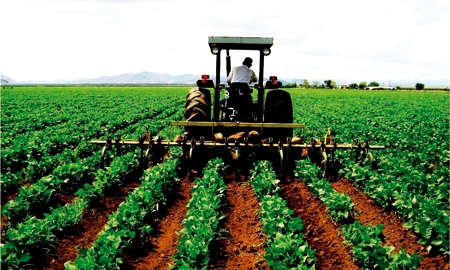Underground basin water is being increasingly pumped to the surface to supply the agriculture sector.
As a result, cultivation is booming, and since the mid-1990s farmers have organised new colonies to transform desert lands into farms. More electricity has been used to pump underground water and turn nearly barren land into farms by tapping aquifers with deep wells.
Indeed, agricultural production has doubled or even tripled in many districts as drought conditions have intensified in much of Chihuahua. Since 2000, when Chihuahua was experiencing its worst drought in years, more than 134,000 hectares have been brought under irrigated agricultural production and this particular sector expanded by 35 per cent in a decade.
Without state-subsidised, cheap electricity, the farming expansion in Chihuahua would not have been possible. No other farm sector in Latin America enjoys such high levels of electricity subsidies. Yet some economists, like those associated with the 2010 World Bank report on agricultural subsidies, think that such governmental support distorts the market. It undermines the productivity of Mexican producers, they argue. It also encourages the reckless exploitation of the country’s endangered aquifers.
But the environmental argument is the one given most weight. The World Bank said: “Agriculture consumes more than 70 per cent of the potable water that is available in Mexico. There are various causes contributing to the excessive water demand from agriculture, among which is the fixing of electricity fees at levels that are highly subsidised.”
Chihuahua has one of Mexico’s key gas lines, which is more than 1,000km (621 miles) long. Gas is imported from the US to supply the Federal Electricity Commission (CFE) parastatal company’s generating plants, and gas is the most used fuel in the elaboration of industrial products.

0 COMMENTS